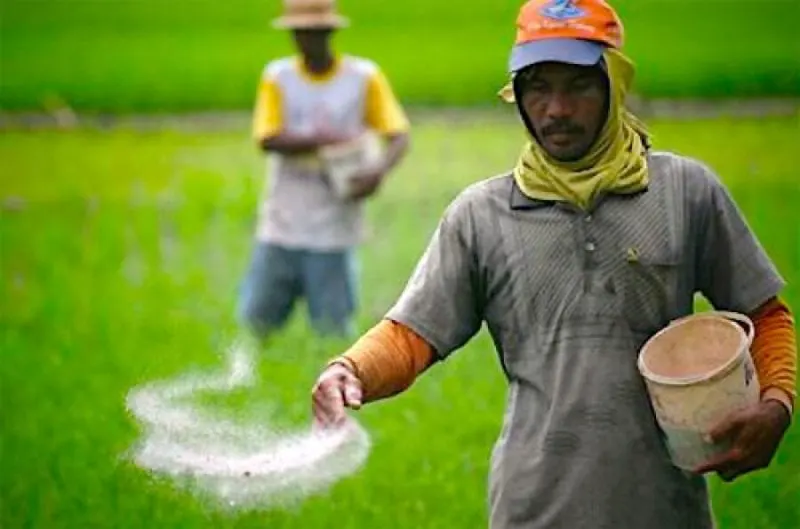Viewpoint: ‘Well intentioned’ Sri Lankan plan to embrace organic farming tainted by lack of science, damaging its economy, health, and food security
Viewpoint: ‘Well intentioned’ Sri Lankan plan to embrace organic farming tainted by lack of science, damaging its economy, health, and food security


In Sri Lanka, world renowned for its tea production, an initiative to go all-organic — the textbook definition of a one trick (and gratuitously handicapped) pony — threatens to backpedal agricultural progress.
Though well-intentioned, the president has called for a Green Socio-Economic Model informed by organic clichés (read: slogans) and threadbare arguments against conventional ag. Basically, restrict the importation of chemical (aka inorganic or synthetic) fertilizers and pesticides overnight. Utopia realized?
Some poeple lauded the decision, identifying it as a critical step towards environmental conservation and human health. In their view, it’s a preemptive strike against a clear and present danger.
Yet it’d be a turnabout of ruinous proportions. Despite the gushing endorsement (to be fair, they recommended an alternative approach to reach the same goal), economists predicted massive economic losses — stemming from yield penalties (25 percent for rice and 35 percent for tea) in lieu of inorganic fertilizers. Reduced food security, food safety, and farm income (exacerbating rural poverty) would be the unavoidable consequence.
Rather than play the chemophobe game, tighten the rules and institutions that govern an evolving ag infrastructure. Technology and education will deliver the desired Green outcomes “organically” (pun intended).
Read the original post

 | Videos | More... |

Video: Nuclear energy will destroy us? Global warming is an existential threat? Chemicals are massacring bees? Donate to the Green Industrial Complex!
 | Bees & Pollinators | More... |

GLP podcast: Science journalism is a mess. Here’s how to fix it

Mosquito massacre: Can we safely tackle malaria with a CRISPR gene drive?

Are we facing an ‘Insect Apocalypse’ caused by ‘intensive, industrial’ farming and agricultural chemicals? The media say yes; Science says ‘no’
 | Infographics | More... |

Infographic: Global regulatory and health research agencies on whether glyphosate causes cancer
 | GMO FAQs | More... |

Why is there controversy over GMO foods but not GMO drugs?

How are GMOs labeled around the world?

How does genetic engineering differ from conventional breeding?
 | GLP Profiles | More... |

Alex Jones: Right-wing conspiracy theorist stokes fear of GMOs, pesticides to sell ‘health supplements’




 Trust issues: What happens when therapists use ChatGPT?
Trust issues: What happens when therapists use ChatGPT? Fighting deforestation with CO2: Biotechnology breakthrough creates sustainable palm oil alternative for cosmetics
Fighting deforestation with CO2: Biotechnology breakthrough creates sustainable palm oil alternative for cosmetics Viewpoint: Video — Big Solar is gobbling up productive agricultural land and hurting farmers yet providing little energy or sustainabilty gains
Viewpoint: Video — Big Solar is gobbling up productive agricultural land and hurting farmers yet providing little energy or sustainabilty gains Viewpoint — Fact checking MAHA mythmakers: How wellness influencers and RFK, Jr. undermine American science and health
Viewpoint — Fact checking MAHA mythmakers: How wellness influencers and RFK, Jr. undermine American science and health California, Washington, Oregon forge immunization alliance to safeguard vaccine access against federal undermining
California, Washington, Oregon forge immunization alliance to safeguard vaccine access against federal undermining 30-year-old tomato line shows genetic resistance to devastating virus
30-year-old tomato line shows genetic resistance to devastating virus The free-range chicken dilemma: Better for birds, but with substantial costs
The free-range chicken dilemma: Better for birds, but with substantial costs ‘You have to treat the brain first’: Rethinking chronic pain with Sanjay Gupta
‘You have to treat the brain first’: Rethinking chronic pain with Sanjay Gupta
